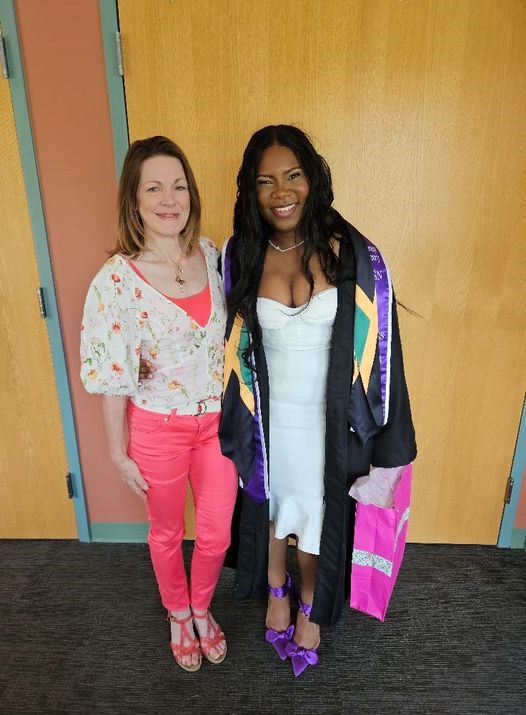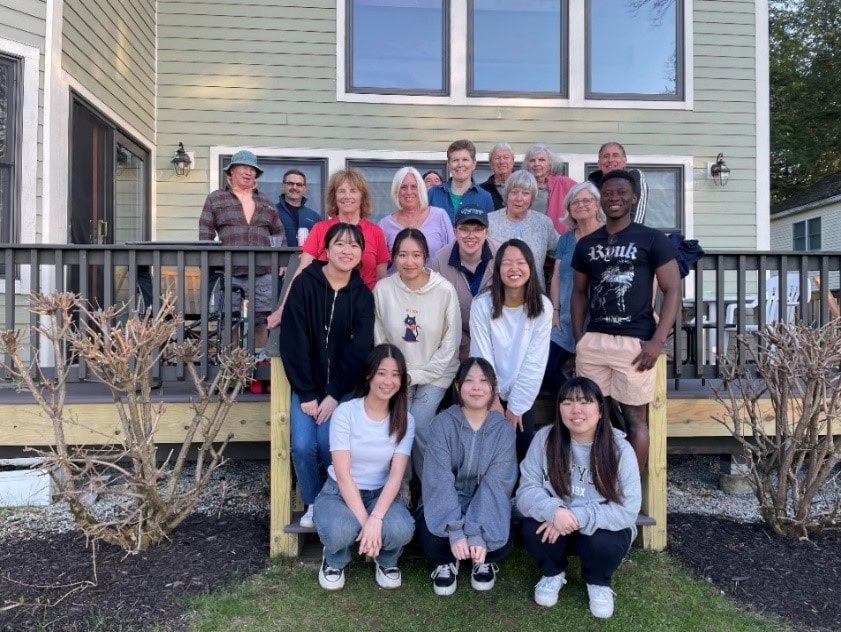Multilingual students find support and academic success at Vermont State University
Nineteen percent of Vermont State University (VTSU)’s first-year students in Fall 2023 identified as Black, Indigenous, or People of Color (BIPOC). Multicultural students make up a significant proportion of these students, including international and exchange students, refugees, immigrants, and domestic students with multilingual heritage. Amongst the multicultural students, the number of students who are fluent multilinguals, meaning they regularly use two or more languages in their day-to-day lives, increases from 87 in Fall 2023 to 166 this coming fall. Vermont State University has taken steps to support these students in their educational pursuits to ensure they are able to succeed.
VTSU Multilingual Student Services has implemented a comprehensive approach known as Content and Language Integrated Learning (CLIL). This approach goes beyond traditional English as a Second Language (ESL) support, providing a robust framework that integrates language learning with subject-specific content learning.
“Vermont State University is committed to meeting our students where they are to support their academic journey and that means approaches like CLIL,” said VTSU Interim President David Bergh. “Additionally, we remain committed to our office of Diversity, Equity, Inclusion and Social Justice at a time when many institutions of higher education are stepping back from this work. Ensuring that all students have the academic and personal support structure in place to succeed is essential. We want these students, and all students, to have a great experience while they are learning here at VTSU.”
Dr. Mary Dinh, Assistant Director of Multilingual Students Services, published her work extensively on how bilingualism can be embraced as a cognitive advantage and academic excellence[1]. She notes that supporting the unique experiences of multicultural multilingual students and the faculty who engage with them is essential to the students’ success, sharing, “so many students that we engage will need a little bit of help to bridge their academic and daily lives. Academic English in higher education, often involving complex scientific concepts and field-specific jargons, is different from the interactional language we in use daily life and our role is to support students so they have both a positive experience and are able to achieve at their full potential.”
“I have to understand each student’s case for personalized support,” she adds. “Sometimes, it’s raising their confidence when they are minorities on campus, sometimes it’s finding ways to promote an intercultural mindset by encouraging students to draw on their diverse linguistic and cultural backgrounds as assets in the learning process.”
The CLIL method is based on the idea that learning a language can help students learn content, and that learning to use language can be integrated into content development. This enables VTSU Multilingual Students Services to serve the needs of historically marginalized students by providing an inclusive and equitable learning environment rather than an isolated English-as-a-second-language course. Students are provided access to resources such as one-on-one tutoring with subject specific (e.g., English in Nursing, English in Music Education, English in Business, etc.), mentoring, learning strategies, and cultural orientation, which are essential for the academic and personal development of multilingual multicultural students.
“Mastering complex medical terminology and understanding lectures in a non-native language takes time. We also have the same amount of time in tests as monolingual language users while having to navigate the translation in our head. The high-pressured assessment styles may also differ greatly from those in a student’s home country. At the same time, we also need to adapt to the rigorous demands of clinical practice, where effective communication and comprehension are crucial,” shared Kimoy Creary in a personal conversation with Dr. Dinh, an international student from Jamaica, who is a newly graduated registered nurse and will be working at Southwestern Vermont Medical Center in Bennington. After earning a degree in nutrition in her home country, she came to VTSU for her nursing degree.
Creary greatly benefited from the self-paced learning resources provided on the Multilingual Students Services shared internal webpage, where she was able to access books and multimedia related to English in nursing, terminologies flashcards, and English used in hospitals. Students can book tutoring sessions to learn testing strategies before high-stakes exams, practice conversations before clinical practicum, or discuss how to draft a publishable research paper. 98% of nursing students using Multilingual Students Services showed significant improvement in both conversational skills and academic performance.
Part of the Student Success and Academic Support Teams, Dr. Dinh’s office also collaborates with VTSU International Students Services, Upward Bound Programs, faculty members, school libraries, and local communities to facilitate activities, such as presentations for local elementary and high school students, international festivals, and public intercultural galleries.
VTSU is playing a crucial role in fostering inclusive and supportive environments for students from diverse linguistic and cultural backgrounds. In fact, the VTSU CLIL model will be featured in the upcoming book, Intercultural Competence in Higher Education English Language Instruction and the university recently partnered with Ho Chi Minh City University of Science (Vietnam National University) to launch a training program for students studying to be English teachers so that they can apply a similar instruction model in their country.
“It’s about recognizing the student’s potential and finding the support they need to study and learn at their best,” adds Dr. Dinh. “We live in an increasingly multilingual world and meeting students where they are, supporting their personal and academic successes, and preparing them to make positive contributions to their communities, our state, and the world, is foundational to our mission. The transformative impact is clear, and stories like Kimoy’s highlights its potential to help VTSU students overcome language barriers and achieve academic success.”
[1] https://scholar.google.com/citations?user=roR3zPEAAAAJ&hl=en&oi=ao







